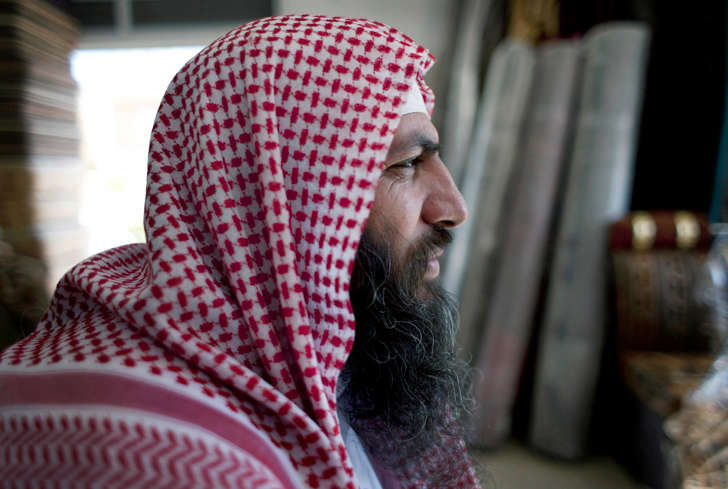Senior ISIS leader killed in U.S. raid in Syria
U.S. Special Operations killed a senior Islamic State leader in a ground raid inside Syria Friday night, the White House said in a statement Saturday.
The statement said that Abu Sayyaf, described as having a senior role in overseeing gas and oil operations that have been a key source of revenue for the militant group, had been killed when he “engaged U.S. forces” and resisted capture.
His wife, who was said to be an Islamic State member, was captured during the operation, and a young woman who appeared to be held as a slave of the couple, was freed. The statement said the young woman was a member of the Yazidi sect in Iraq, the White House statement said.
“We intend to reunite her with her family as soon as feasible,” National Security Council spokesman Bernadette Meehan said.
Defense Secretary Ashton Carter said in a separate statement that no U.S. forces were killed or injured during the operation.
It was the first “direct action” ground raid by U.S. forces inside Syria, a U.S. Defense official said. The first raid was an unsuccessful attempt to rescue American hostages early last year.
The nighttime raid was carried out by a team of the Army’s Delta Force troops, who traveled in Black Hawk helicopters and Osprey aircraft, the official said. A firefight broke out after they touched down near a building where Abu Sayyaf was believed to be located and militants tried to use women and children present as shields, the official said.
 © AP Photo/Nasser Nasser
Salafi cleric Mohammed al-Shalabi, 48, widely known as Abu Sayyaf, talks during an interview on Oct. 29, 2014.
Clashes that followed included hand-to-hand fighting between U.S.
soldiers and militants, and about a dozen militants were killed. “It was
a real fight,” said the official, who spoke on condition of anonymity
to provide still-secret details.
© AP Photo/Nasser Nasser
Salafi cleric Mohammed al-Shalabi, 48, widely known as Abu Sayyaf, talks during an interview on Oct. 29, 2014.
Clashes that followed included hand-to-hand fighting between U.S.
soldiers and militants, and about a dozen militants were killed. “It was
a real fight,” said the official, who spoke on condition of anonymity
to provide still-secret details.No civilians were reported injured, he said. As the troops left the scene, militant fire ripped holes in the aircraft.
The troops also recovered items from the scene that will be used for intelligence purposes, but the official declined to say what sort of items.
The official described Abu Sayyaf, a Tunisian, as “fairly high up” in the ISIS hierarchy but not among the four most senior militants tracked by the United States. In addition to directing black market oil and gas operations in Syria, the White House statement said he was also “involved with the group’s military operations.”
The attempt to capture Abu Sayyaf was made not only because of the positions he held, but also to obtain possible information about the remaining U.S. hostages being held by the Islamic State. A senior administration official said that the administration had assessed it likely that he was in direct contact with Islamic State leader Abu Bakr al-Baghdadi.
The official said that the detainee, an Iraqi national identified only as Umm Sayyaf, the Arabic term for wife of Sayyaf, was being debriefed “to obtain intelligence about ISIL operations. We are also working to determine any information she may have regarding hostages — including American citizens who were held by ISIL.” ISIL is another term for the Islamic State.
The White House statement said U.S. forces were working “to determine an ultimate disposition” for Umm Sayyaf. It said she was currently was being held in “U.S. military detention in Iraq.”
The operation was launched from Iraq, where the White House said it had the “full consent of Iraqi authorities.”
“The President authorized this operation upon the unanimous recommendation of his national security team, and as soon as we had developed sufficient intelligence and were confident the mission could be carried out successfully and consistent with the requirements for undertaking such operations,” the statement said.


No comments:
Post a Comment